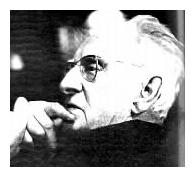 A.S. Neill
A.S. Neill
A.S. Neill was the founder of Summerhill School and its guiding spirit for
the first fifty years of operation. This is what the Encyclopedia Britannica has
to say of him:
Neill, A.S.
born Oct. 17, 1883, Forfar, Forfarshire, Scot. died Sept. 23, 1973, Aldeburgh,
Suffolk, Eng.
in full Alexander Sutherland Neill British educator and author who
founded the Summerhill School(q.v.) and championed free self-development
in the education of children.
The son of a schoolteacher, Neill graduated from the University of Edinburgh
with an M.A. degree in 1912 and became headmaster of the Gretna Green School in
Scotland in 1914. He recorded his initial teaching experiences in the
autobiographical novel A Dominie's Log (1916) and wrote several sequels
to this work, with some of them being reprinted in 1975 as The Dominie Books
of A.S. Neill (dominie is Scottish for "schoolteacher").
Neill and others founded an international school near Dresden, Ger., in 1921.
The school was moved to Sonntagberg, Austria, three years later but was soon
closed because its unconventional curriculum and teaching methods were opposed
by the local authorities. In 1924 Neill moved the school to Lyme Regis, Dorset,
in England, and named it Summerhill after the building he had leased for its
quarters. In 1927 he moved the school to its permanent home in Leiston, Suffolk.
Summerhill School became internationally known for its self-governing
student-teacher body and its flexible curriculum that emphasizes the student's
own motivation to learn. Neill drew considerable criticism for his permissive
attitudes toward academic discipline, however.
Neill's principal book about his educational methods, Summerhill: A
Radical Approach to Child Rearing (1960), stimulated debates about
alternatives to conventional schooling. The book was more influential in the
United States and West Germany than in Great Britain. His other books include The
Problem Child (1926), The Problem Parent (1932), The Problem
Family (1949), The Free Child (1953), and an autobiography, Neill!
Neill! Orange Peel! (1972).
(See, http://www.britannica.com/eb/article?eu=56586&hook=247171#247171.hook)
Neill was the fourth of 13 children. He was son of the village schoolmaster,
a stern, puritanical man who ruled his classroom with a rod. In those days the
strap or `tawse' was commonly used in schools in Scotland and when at the age of
15 Neill was taken on as a pupil teacher by his father, he was expected to use
it on the other children.
At the age of 25, Neill went to Edinburgh University and took a degree in
English. Afterwards he became a journalist, and later head of a small school in
Gretna Green. It was there that he wrote his first book and began to form his
ideas on freedom for children. After a year in the school he wrote:
"I have converted a hard-working school into a playground, and I
rejoice. These bairns have had a year of happiness and liberty. They have done
what they liked; they have sung their songs while they were working at graphs,
they have eaten their sweets while they read their books, they have hung on my
arms as we rambled along in search of artistic corners."
(See, http://www.s-hill.demon.co.uk/history.htm#Summerhill)
It is clear even in this early snippet from his writing that Neillís
approach to liberty was unselfconscious about the extent to which traditions
from the prior methods continued to influence activities under his system. For
example, he refers to the children singing, while "working at graphs."
This mixture of the traditional with the innovative seems to remain a mark of
the hands-on approach to educational issues at Summerhill.
After his initial experiences in what might be called "open
classroom" methods at the Gretna Green school, Neill met Homer Lane and saw
the innovations at the Little Commonwealth. The confluence of these ideas
eventually led to Summerhill School.
